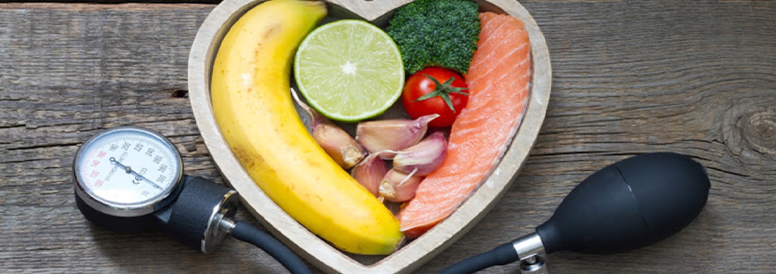Blood Pressure: Why and How to Support Your Patients
By Dr. Josh Axe | December 23, 2020
While high blood pressure or hypertension is highly common in the U.S., many healthcare practitioners agree diet and exercise are the most important tools for supporting healthy blood pressure naturally and successfully.
High blood pressure isn’t just a problem in and of itself. As we know as practitioners, it can also lead to other dangerous health conditions, including stroke, heart attack, chronic heart failure and kidney disease.
At the age of 50, total life expectancy is about five years longer for people with normal blood pressure than for those who have hypertension. That’s just another worthwhile reason to help your patients maintain healthy blood pressure.
Root Causes & Risk Factors
High blood pressure has a laundry list of risk factors. The good news is that the majority of these hypertension risk factors are well within your patients’ control. They include:
- Age: The risk increases as age increases.
- Family history: It tends to run in families.
- Race: It’s especially common among African-Americans and often develops at an earlier age than it does in Caucasians.
- Being overweight: The higher the body weight, the more blood that’s needed to supply oxygen and nutrients to the tissues. As the volume of blood increases, the pressure on the artery walls increases, along with blood pressure.
- Not being physically active: People who are less active tend to have higher heart rates. The higher the heart rate, the harder the heart needs to work with each contraction and the stronger the force on the arteries. Lack of physical activity and exercise also increases the risk of being overweight.
- Tobacco use: In addition to smoking or chewing raising blood pressure temporarily, the chemicals in tobacco damage the lining of the artery walls. This causes the arteries to narrow, increasing the blood pressure.
- Too much alcohol: Over time, having more than two drinks a day for men and more than one drink a day for women may affect blood pressure negatively.
- Too much sodium or too little potassium in the diet
- Stress
- Certain chronic conditions: Conditions such as kidney disease, diabetes and sleep apnea may increase the risk of high blood pressure.
- Pregnancy: Sometimes pregnancy can contribute to high blood pressure.
Supporting Your Patients With Diet
It’s important to encourage your patients to know that diet and physical activity are among the best natural remedies for healthy blood pressure.
What they do on a daily and weekly basis MATTERS!
Foods to avoid
- Alcohol: It narrows arteries and can increase blood pressure. Moderation for healthy adults means up to one drink a day for women of all ages and men over 65, and up to two drinks a day for men age 65 and younger.
- High-sodium foods: No fear in adding some good-quality salt to your food, but definitely avoid high-sodium processed and canned foods.
- Trans fats and omega-6 fats: Found in packaged foods and conventional meats, these fats increase inflammation and blood pressure.
- Sugar: High sugar consumption contributes to high blood pressure, with studies showing sugar intake might be more concerning than salt intake when it comes to blood pressure.
- Caffeine: Too much of it can cause an increase in blood pressure. For those suffering with high blood pressure, reducing daily consumption of coffee and other caffeinated beverages can be a relatively easy way to lower the numbers.
Foods to Eat
- Mediterranean diet: High in fruits, vegetables, seafood and healthy omega-3 fat oils. Some of the best foods to include are olive oil, wild-caught fish (especially salmon) and a lot of vegetables and fruits.
- High-potassium foods: Potassium balances the effects of sodium and helps lower blood pressure. Foods to include are coconut water, melons, avocados and bananas.
- High-fiber foods: Unprocessed foods high in fiber, such as vegetables, fruits, seeds and beans, are an important foundation for any healthy diet, especially one looking to support healthy blood pressure.
- Omega-3 rich foods: Foods like wild-caught salmon, grass-fed beef, chia seeds and flaxseeds support healthy levels of inflammation.
- Apple cider vinegar: Naturally very high in potassium, it also helps to keep the body alkaline, which can support healthy blood pressure.
- Tea: Drinking white tea several times a day on a consistent basis can improve artery function and lower the pressure of your blood.
- Dark chocolate: Look for healthy chocolate containing at least 200 milligrams of cocoa phenols.
Additional recommendations
- Increase physical activity and exercise
- Reduce stress and practice daily relaxation techniques
- Consider diffusing neroli, lavender, ylang ylang, sweet marjoram, clary sage and frankincense essential oil, or applying a few drops of essential oil topically using a carrier oil
- Keep up with healthcare practitioner visits
- Consider monitoring blood pressure at home if warranted
- Eat a nutrient-dense diet to maintain a healthy weight
- Quit smoking
Helping your patients hold themselves accountable with their dietary and other modifications can often provide the support they need to follow through.
What a gift it is to support them on their journey!

